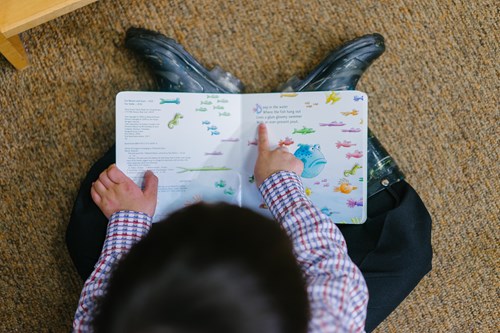It’s never too early to teach your kids the importance of setting goals. When they are older they will have their own financial and familial responsibilities. For now training them with small, reachable goals, will give them the confidence to reach much bigger goals down the road.
Below are 7 goals we have found to be achievable for both kids and adults alike.
1. Savings! A safety net is very important and even though your kids likely don’t have more than a few dollars, if they have any money at all, they can still get into the habit of setting some money aside. If your kids don’t get an allowance in your house and don’t really have many opportunities to earn money, consider this method:
Give your child a dollar in change at the beginning of every week. Locate and decorate two small containers, one labeled spend and one labeled save. At the beginning of the week show your child how you are dividing your money and encourage them to do the same (make a jar yourself and put in play money with an amount written on it to symbolize your actual funds then put your savings plan into action and move some money over in your actual account online!)
2. Going Outside. EVEN in the winter. Bundle up and go and get some fresh air. The Vitamin D from the sun is important to our health physically and mentally. Set a goal to spend a certain amount of time outside each day, choose a park to visit once a week, or pick a walking route to do bi-weekly.


3. Tap into your creative side. You may not be a traditionally artsy person, but anyone can do art. Don’t worry about the outcome, just worry about the process. Creation should be enjoyable and expressive. Set a goal to use art supplies found in your house each Monday to create a fun project. You can think of ideas on the spot, or refer to Pinterest for more. If you don’t have any craft supplies in your house don’t worry, you can grab a cart full of supplies at your local dollar store for under $20 and it will last you for a few months (depending on how you use it). Use time weekly to exercise your mind and your child’s mind in a creative way.
4. Pitch in. Make family dinner a time to come together. Request that your child helps with dinner everyday in some way. That could mean setting the table, stirring the pot of soup, putting dirty dishes in the sink, etc. At the start of each week plan out your meals, but allow your child to choose one meal. Allowing them to be a part of the planning process will help them get excited to help out! It will also give them a chance to learn more about the kitchen.
5. Set a learning goal. A certain time allotted for reading each day keeps children constantly learning and improving their vocabulary and memory. If they are not reading yet, use the allotted time to read to them. Help them get into the habit of reading regularly. Reading at bedtime is a good practice too, but there should be another time set aside to read during the day.


6. Clean up crew. Make cleaning together a part of your weekly routine. Make a chore chart with stickers to help your child get excited about doing chores. Every time they complete one on their own, or help you out with one, they get to put a sticker on the chart. Consider celebrating in some small way once they have a certain amount of stickers. If you do consider making it a reward system, make sure the rewards are relative to the process and not unnecessarily huge. For example, “after 7 days and 7 stickers of keeping the living room clean, we can purchase a movie to watch together in the clean room” or “once we have 4 stickers in a row of cleaning the kitchen, we can cook a fun dessert together there”.
7. Turn off screens. Make a goal to minimize screen time. Set a time limit for each day allotted for games or shows. Then, set a goal for yourself. Decide when and how to use your phone. If you are with your child make a goal to put your phone away. Be fully present.
Setting goals with your children is a great way to teach them responsible habits and bond with them. Use these 7 tips to set goals with your kids this year. And remember, if you have a goal to keep your home healthy this year, book with Metro Chem-Dry to do just that!
A couple helpful tips:
- Steer away from food oriented goals. Children are impressionable to misconceptions about their body image and should not be forced into diet culture.
- Frame fitness goals carefully. They should be about FEELING healthy and good NOT LOOKING a certain way.
- Make sure goals are specific. If there aren’t expectations put into place, it will be too confusing to work on the goal itself.
- Tailor the goals to make to the age of your child. Be realistic while also encouraging your child to stretch a little bit.
BACK TO BLOGS

